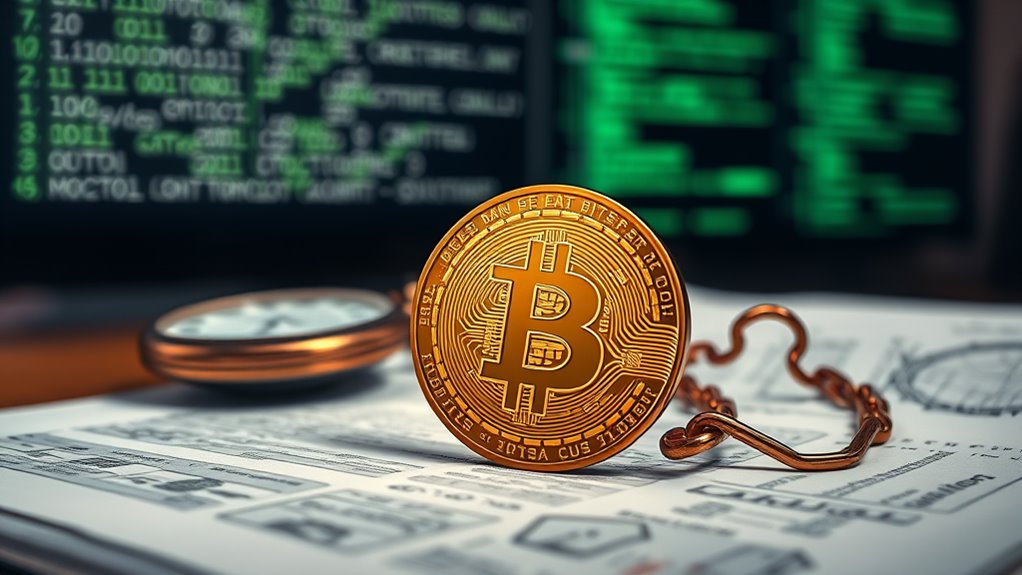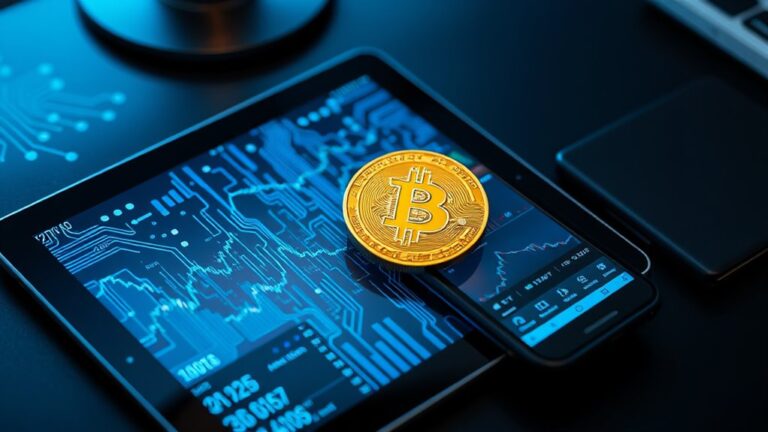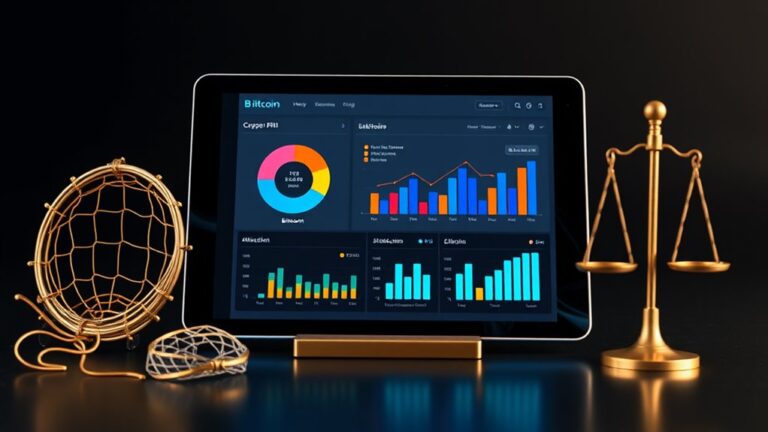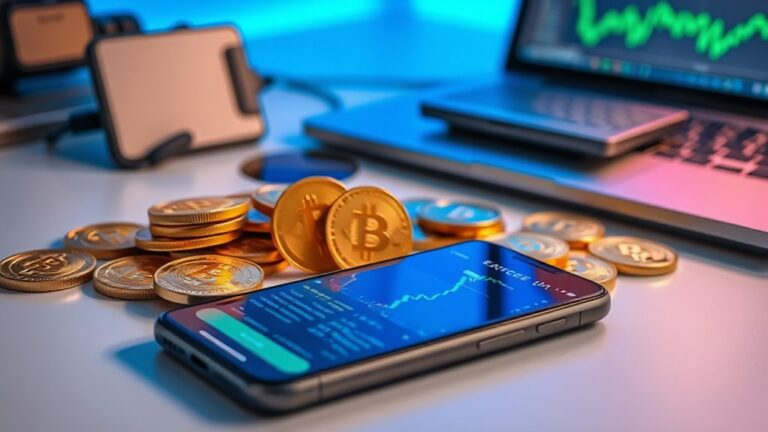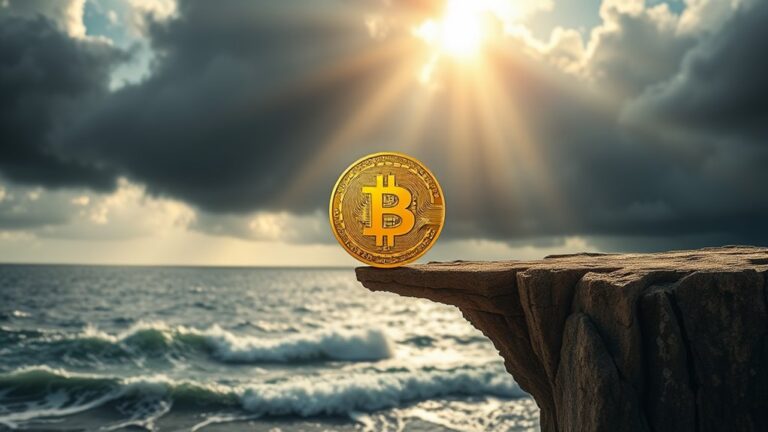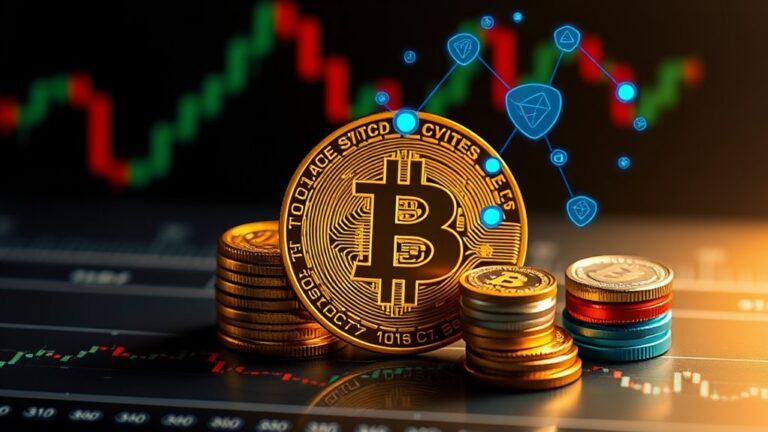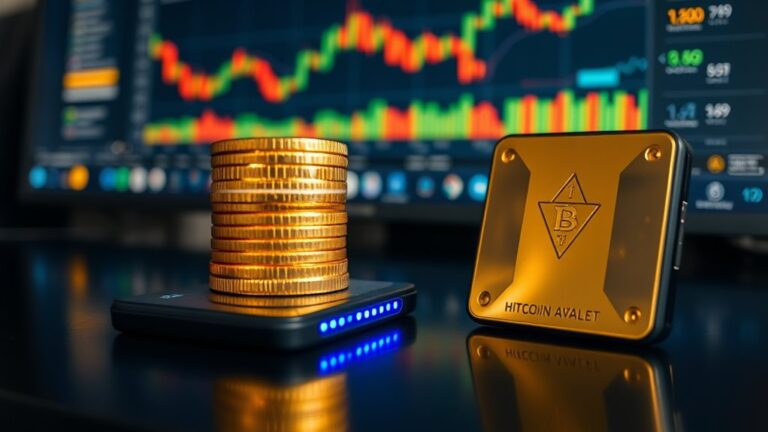Satoshi and Bitcoin: Key Facts
Note: This post may contain affiliate links, and we may earn a commission (with No additional cost for you) if you purchase via our link. See our disclosure for more info. The gold and crypto world is constantly changing. This is not financial, investment, legal, or professional advice. So, please verify the information on the gold and cryptocurrency provider’s websites.
Satoshi Nakamoto launched Bitcoin with a 2008 white paper and released the first software in 2009. Mysteriously, Satoshi vanished from the scene by mid-2010, leaving a staggering fortune of 750,000 to 1.1 million BTC, untouched. Got wealth? Yeah, it's worth about $73 billion. They introduced groundbreaking tech like a proof-of-work system and a decentralized database. The identity? Still a secret. Speculation runs rampant. Curious about the legacy and impact? There's plenty more to uncover.
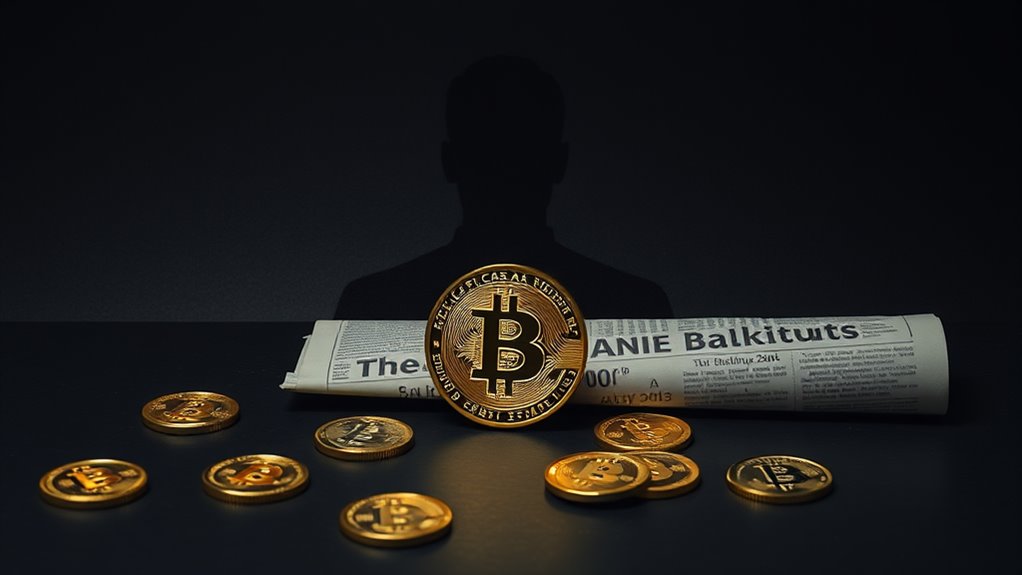
Satoshi Nakamoto—whoever that is—changed the world with Bitcoin. In October 2008, they published a white paper outlining a peer-to-peer electronic cash system. Sounds fancy, right? Then, in January 2009, Bitcoin software v0.1 hit SourceForge. The genesis block was born, complete with a 50 BTC reward. Oh, and let's not forget the embedded message: “The Times 03/Jan/2009 Chancellor on brink of second bailout for banks.” Talk about dramatic flair!
Satoshi didn't just create a currency; they invented the first blockchain database. Then, in mid-2010, they handed over the keys to Gavin Andresen. Bye-bye, Satoshi, hello chaos! Who even is this person? Speculation runs rampant. Newsweek made a big splash in 2014, mistakenly identifying Dorian Nakamoto. He was not pleased. Others, like Craig Wright and Nick Szabo, have also been tossed around like a hot potato. Linguistic patterns in Satoshi's writings have been analyzed, but it's all a guessing game.
Satoshi sparked a whirlwind of speculation before vanishing, leaving behind a legacy and a mystery that continues to baffle.
Bitcoin introduced a proof-of-work mechanism to secure transactions. It's like a digital bouncer keeping the riffraff out. A distributed timestamp server was proposed to keep everything in check. Cryptographic hashes? Yep, those too, along with a public-key infrastructure for security. It even tackled the double-spending issue that plagued digital cash before. The first real-world transaction? 10,000 BTC for two pizzas. That's one expensive meal! One of Bitcoin's most revolutionary features is the transaction immutability that ensures confirmed transactions cannot be reversed or altered.
Satoshi's estimated wealth? A staggering 750,000 to 1.1 million BTC, valued at up to $73 billion in November 2021. Those coins? Untouched. Speculation swirls about the motives. Satoshi's wealth could rival the richest. Additionally, they collaborated with developers until mid-2010, leaving a lasting impact on the Bitcoin ecosystem. Consensus on transaction validity is crucial for maintaining the integrity of Bitcoin's decentralized network.
Culturally, they've left a mark—a bust of Satoshi was even installed in Budapest in 2021. The ripple effect? A whole cryptocurrency movement and decentralized finance. So, Satoshi, wherever you are, you're kind of a big deal.
Frequently Asked Questions
What Are the Potential Risks of Investing in Bitcoin?
Investing in Bitcoin comes with a laundry list of risks.
First off, it's a rollercoaster ride; prices swing wildly, reacting to every tweet or regulation.
Then there's the security nightmare—hacks happen, and good luck getting your money back.
Plus, forget about insurance; if an exchange goes belly up, you're out of luck.
And let's not even start on regulatory chaos.
It's like playing poker with a deck stacked against you. Good luck!
How Does Bitcoin Mining Work?
Bitcoin mining? It's like a high-stakes digital lottery.
Miners scoop up transactions, validate them, and cram them into blocks. They solve a mind-bending puzzle to find a nonce, which is just fancy talk for a number that fits.
With pricey ASICs and a ton of electricity, it's not a casual hobby. They earn block rewards and transaction fees—but only if they can keep up with the ever-changing difficulty.
Talk about pressure!
Can I Buy Bitcoin Anonymously?
Buying Bitcoin anonymously? Totally possible.
Peer-to-peer platforms let cash flow without a trace.
Bitcoin ATMs? Sure, if you don't mind those pesky fees.
Decentralized exchanges? They're shady, but in a fun way. Just watch out for scams.
And don't forget about those nifty privacy tools—VPNs and coin mixers can help, but they come with their own risks.
What Is the Future of Bitcoin Regulations?
The future of Bitcoin regulations? Buckle up. It's a chaotic ride.
The EU's trying to play nice with the MiCA, while the U.S. can't decide if it's in or out.
China? Total buzzkill, outright banning crypto.
Meanwhile, places like Singapore and Switzerland are waving their flags, saying, “Come innovate here!”
Expect a mix of confusion, collaboration, and some serious head-scratching as global standards slowly crawl into existence.
Good luck keeping up!
How Do I Safely Store My Bitcoin?
Storing Bitcoin safely? It's not rocket science, but it's not a walk in the park either.
Cold storage methods are your best bet. Think hardware wallets like Ledger or Trezor. They keep your private keys offline. Hacking? Not an issue if your keys aren't online.
It's like keeping your cash in a safe instead of under your mattress. Seriously, don't be that person. Secure your digital assets, or risk losing them to virtual thieves.

